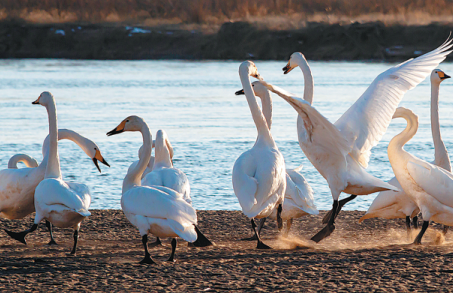Ranger relishes riverbed's wetland transformation


Overgrazing, deforestation, garbage dumping and illegal sand mining further damaged the area's fragile ecosystem, causing severe salinization.
"At the time, the wetland was covered by white salt crust and often hit by sandstorms," Wang said.
Alarmed by the worsening environment, the local government launched a spate of restoration projects in 2010, replenishing water resources, planting trees, banning grazing and turning farmland back to wetland.
The area was designated as a national-level wetland nature reserve in 2011, which further boosted the local ecological restoration efforts.
Wang was offered the job of full-time ranger in the reserve by local officials after he sold all his 200 sheep in response to the call for better wetland protection.
"The job eased all my worries about how I would make a living without my sheep," he said.
- World's largest vertical shaft boring machine deployed for cross-river railway tunnel
- Former chairman of State-owned enterprise sentenced to death with two-year reprieve
- Sichuan's ecological restoration attracts record number of migratory birds
- Two firms fined 23 million yuan for deadly Jiangxi fire
- Beijing introduces new policies to enhance parks
- Marriage registrations surge in Shanghai following nationwide policy change





































